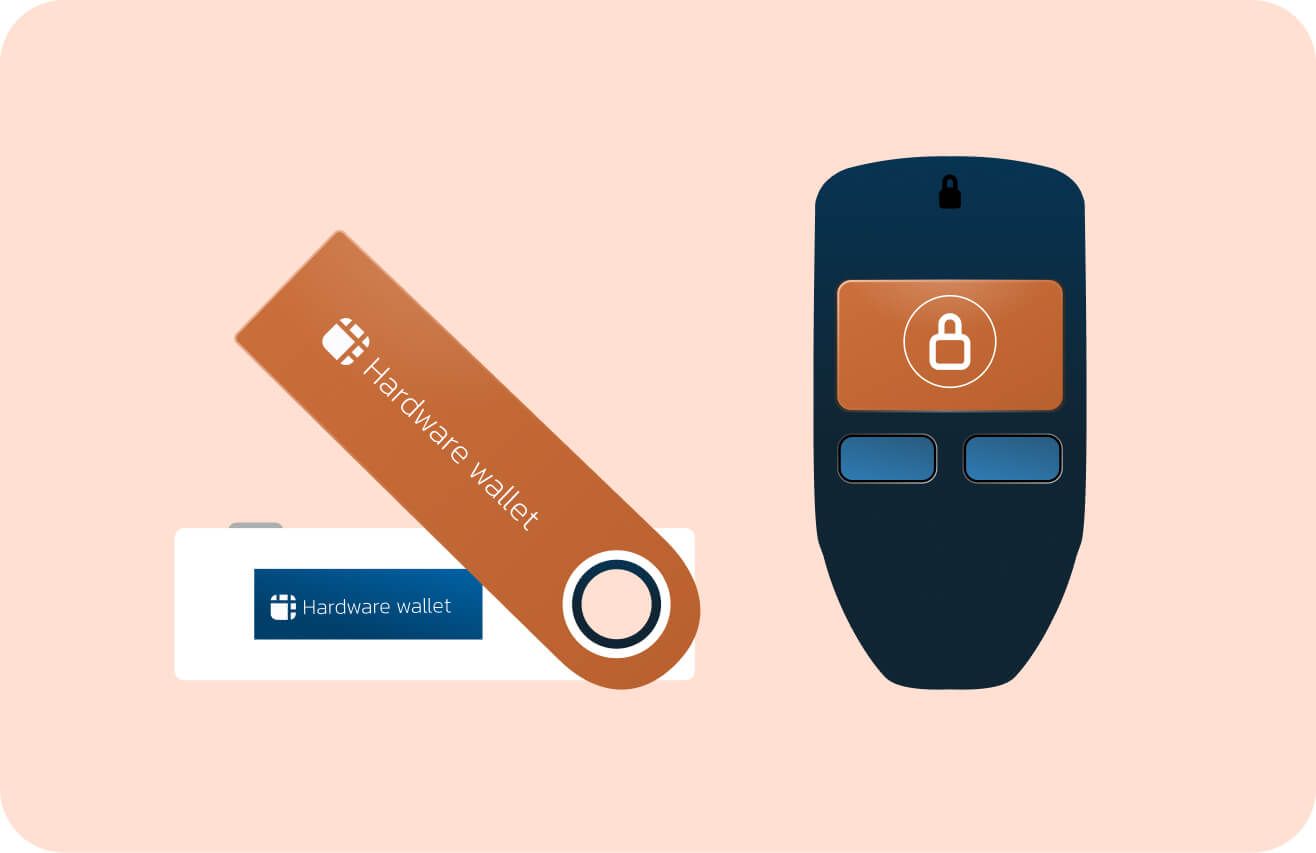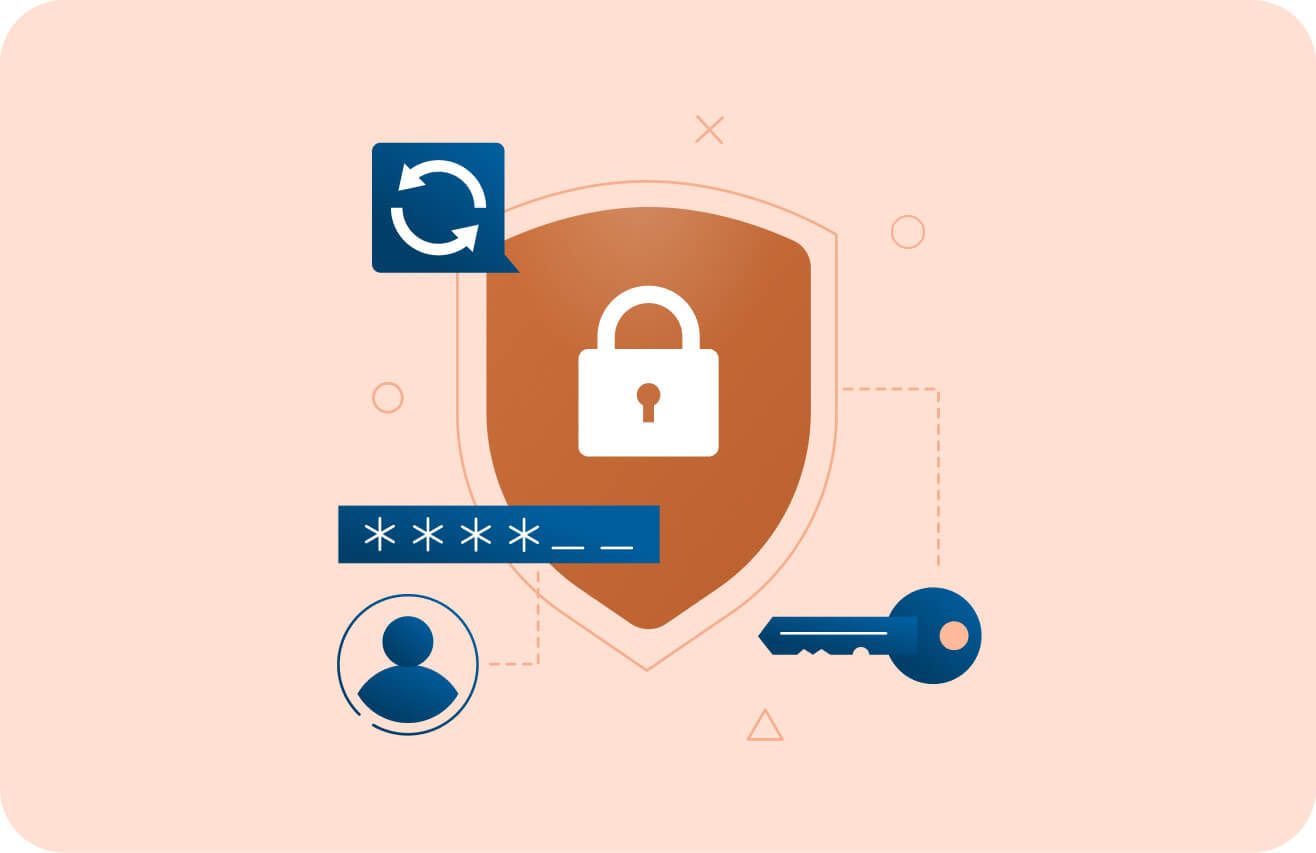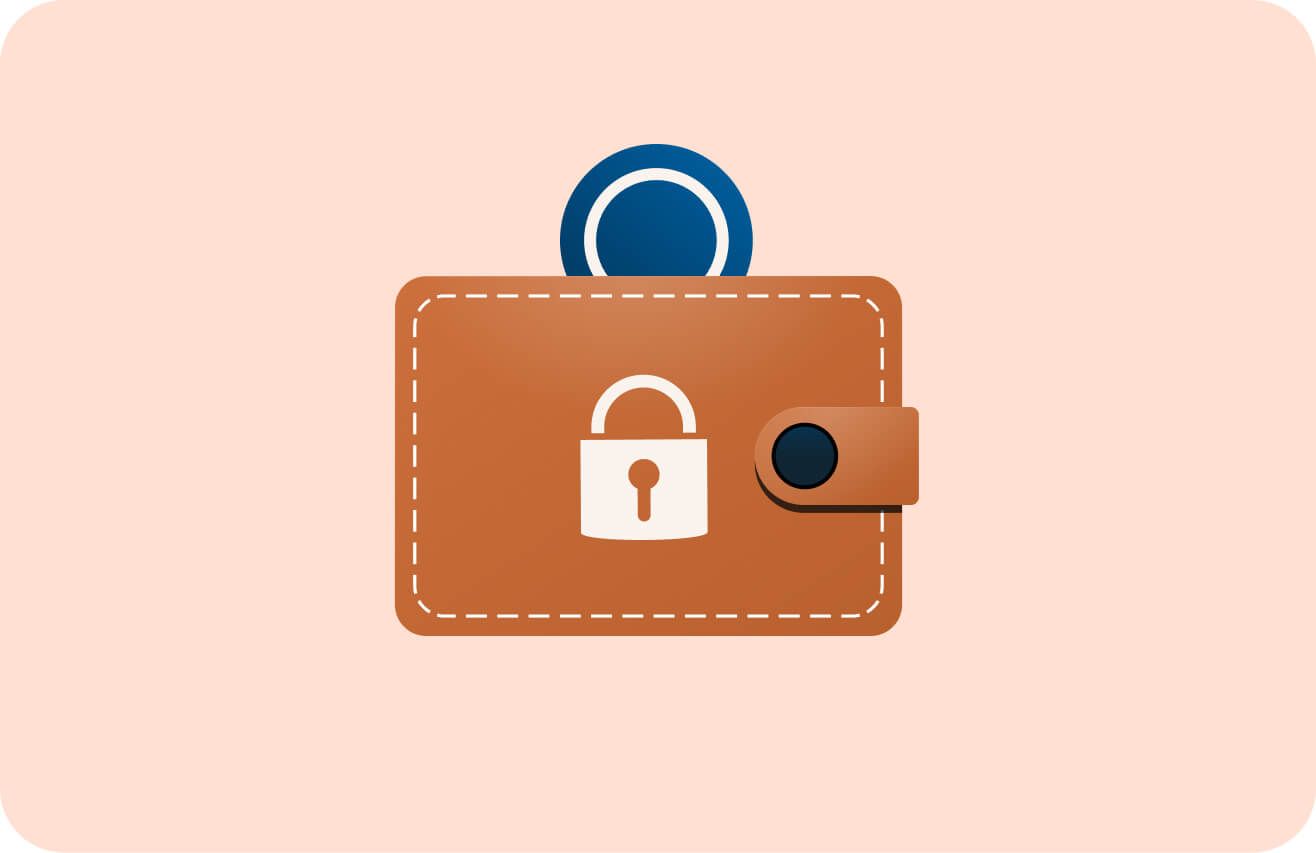
Exploring Inter Blockchain Communication (IBC) and the Role of the Cosmos Ecosystem


Taking part in crypto and defi activity is truly exciting and can generate great financial benefits; however, understanding how to store and use your portfolio is vital.
Understanding the steps to protect and house your cryptocurrency, NFTs, and other assets is easier when you know the differences between the options available. Choosing the right crypto wallet for your personal needs is crucial to ensuring security and convenience while using your crypto assets safely. You must understand the core differences between a hot wallet and a cold wallet to choose where to store and use your cryptocurrency.
The crypto industry and market are ever-evolving. It's worth keeping up to date with all the latest security and safety protocols to ensure you stay ahead of current scams or hacks and avoid compromising your privacy. Here at Frontier, we're keen to provide as much information to our users as possible about privacy and trust; it matters the most to us.
A hot wallet is an online currency wallet application used for cryptocurrency transactions such as storing, sending, staking, and receiving tokens. They can be used via a browser or mobile app. A hot wallet uses a series of keys made up of letters and numbers generated cryptographically to allow cryptographic transactions on the blockchain network. A saved program helps store and send cryptocurrencies while connected to the internet; hence, a "hot" wallet because it is online. As hot wallets are online, they are accessible to being hacked or manipulated without the proper due diligence and security protocols being followed by the owner. That said, choosing the correct hot wallet for your trust and privacy needs is crucial to having a positive crypto experience.
You can have custodial and non-custodial hot wallets for crypto. They will both have an interface that enables easy personal access while allowing third-party integrations. However, the most suitable type to choose if you want to be the only person with access to and control over your assets is non-custodial. The name "non-custodial" means the wallet is not governed by an entity (such as a centralized crypto exchange) and is solely under your control. This means your assets are much safer from anyone manipulating, using, or having general control over them. If you've heard about what happened with the FTX collapse, choosing a non-custodial wallet will prevent anyone from being able to control your assets in the same way, keeping you safe.
A non-custodial wallet requires you to be solely responsible for storing your private keys; therefore, you will not be able to ask any business or company for support if you lose them. Hence, non-custodial crypto wallets best suit those who can handle the sole responsibility of storing and safeguarding their private keys. As soon as you lose the keys, you'll lose access to your funds, and your wallet provider won't be able to help you retrieve them.
Considering all these factors, it makes sense to choose a smart wallet that can offer you maximum security and convenience. There are several hot wallets to choose from, including those mentioned below:
The Frontier wallet is an excellent non-custodial wallet for crypto users, being the one-stop shop for all your Web3, crypto, and DeFi activities. Swap, Stake, Bridge, and Buy crypto directly in the wallet. It is available on both Apple and Android platforms and as a browser extension. It is the perfect tool for crypto transactions, offering over 35 blockchains to users, including Ethereum, Solana, Near, Cosmos, and Polkadot. The native integration with popular providers and blockchains securely facilitates quick token swaps.
Frontier also facilitates DeFi, a rapidly growing and popular choice for blockchain-based applications and NFTs. The native DApp integration permits instant exposure to several DeFi protocols. The Frontier wallet allows you to earn passive income on your crypto by staking or providing assets in DeFi apps. Purchasing and storing NFTs in the same place as your cryptocurrency has traditionally been done across different wallet providers. Still, with Frontier, you can house them securely in the same wallet.
MetaMask is a cryptocurrency wallet for the Ethereum blockchain. Users can access their Ethereum wallet over a browser extension or a mobile app to interact with decentralized applications. You can either download the wallet software or add the browser extension without disclosing your name, email, social security number, or address. Decentralization prevents a single entity from accessing the entire wallet system while ensuring transactions on the blockchain are visible to connected nodes.
MetaMask also facilitates the storing and purchasing of NFTs in connection with marketplaces such as OpenSea. It also supports several blockchains, including the BNB, Polygon, and Avalanche chains. However, it doesn't support Bitcoin and is very technical, with no live customer support, making it unsuitable for new crypto investors.
TrustWallet allows users to securely send, receive, exchange, and hold digital assets such as cryptocurrencies and NFTs. It supports multiple blockchain networks and is available on iOS and Android and as a browser extension. Access to NFT marketplaces such as OpenSea to view, collect, and exchange NFTs is also available.
A cold wallet is an offline digital wallet for storing bitcoins or other cryptocurrencies, known as "cold storage." Unlike a hot wallet, a cold wallet stores the digital wallet on a physical device not connected to the internet. This ensures protection from several online threats, such as unauthorized access, cyber hacks, and other vulnerabilities.

Cold wallets are convenient for investors who keep their assets private and safe. Likewise, cryptocurrency exchanges and crypto companies use them extensively for improved security. Unlike hot wallets, cold storage wallets remove your private keys from your crypto wallet, thus making it a more secure option by denying unauthorized access.
A cold hardware wallet allows you to keep your crypto offline when you don't want to trade or use it. While offline, there's no need to worry about hacking or malware infection. Popular wallets also allow you to authorize transactions from your phone or computer to ensure the wallet is secure because your private keys are never sent over the connection.
You'll find several cold wallets on the market, making it challenging to pick one for storing your crypto assets. Choose a non-custodial cold wallet with maximum security and convenience so you can do regular transactions without needing additional security measures.
Below are two of the most preferred cold wallets for crypto users:
The Ledger crypto-cold wallet is regarded as the best in business. Users prefer the second-generation cold wallet, the Nano X, the most. It allows you to manage, exchange, and buy crypto on the go, as the wallet is available on phones for mobile users. So, you can still trade from your Android or iOS devices even if you don't have a computer.
Nano X comes with the Ledger Live software for checking your balance and sending and receiving cryptocurrencies from over 1,800 digital coins and tokens. Ledger Live also facilitates coin staking, through which you can earn rewards according to your balance. This small but powerful cold wallet allows access to all smart services, such as DeFi apps, NFTs, and more.
Trezor is another popular choice among crypto users looking for cold wallets. The Model T is a good choice of cold wallet as it allows users instant access to third-party exchanges such as Changelly and CoinSwitch through the Trezor internet interface.
It is encrypted cold storage with a touch screen feature, which makes it easier for new cryptocurrency users as the learning curve is slight. You can connect it to a desktop computer or a smartphone via USB if you don't wish to use the Bluetooth feature.
The main difference between hot and cold wallets is that the former is always connected to the internet, making it vulnerable to online hacks. A cold wallet stores cryptocurrency keys offline and doesn't need an internet connection, so it has better security.
Hot wallets are connected to the internet through an app on your phone or desktop. Although it improves accessibility and ease of use, it is prone to more significant hacking threats and malicious attempts to steal personal information and digital assets.

A hot wallet comes with in-built security measures, but you can improve its security through the following tips:
Although cold wallets are the opposite of hot wallets, they, too, are prone to some security threats. Here are some tips to keep your cold wallet safer:
The first step to buying, selling, trading, or transferring cryptocurrency assets is to set up a crypto wallet. You can set up a hot wallet easily. Here's how:

Whether you use hot or cold wallets, keeping your crypto wallet safe is just the start.
You also must be vigilant against people trying to trick you into sharing your seed phrase or inadvertently giving access to your exchange account. Here are a few tips to protect your crypto:
Decentralized Decentralised Finance, or DeFi, is an emerging FinTech based on secure distributed ledgers, like the ones used by cryptocurrencies. It is the opposite of Centralised Finance, which we all know traditionally as the finance industry commonly governed by financial businesses and authorities (*such as the FED, FCC). The appeal of DeFi is to be outside of that regulation and for any authorities to know what assets you have and control them.
DeFi is based on smart contracts and is harder to hack because it is difficult to attack a distributed system. Anyone can use DeFi services via non-custodial wallets regardless of their credit score and financial history. All you need is an internet connection and funds to cover transaction fees.
Non-custodial wallets allow you to access DeFi by recognizing you even without any of your details. You can use your wallets to store cryptocurrencies and access them with a password and a key phrase (seed phrase) made up of 12 random words. These wallets facilitate transactions and the use of financial products while offering access to decentralized applications and building your applications or creating new crypto tokens. They allow you to make peer-to-peer transactions and use DeFi financial services in complete anonymity.
However, the DeFi space isn't just a place to buy and sell financial assets - it's also a marketplace to find various products and services. It allows you to swap assets - earn from lending, staking, and farming services. Check your NFTs or connect to platforms to mint and buy them.
In general, non-custodial wallets are a bit harder to use than centralized wallets as they require a more profound knowledge of the crypto space and a higher level of self-trust over your pass keys. First, you should select a wallet according to the blockchain you want to use. Although several wallets allow interoperability, a DeFi wallet can't be used on any blockchain or for any DeFi platform.
So, it would be best if you choose the right wallet or wallets according to your needs. You'll need the corresponding software (for hot storage) or hardware (for cold storage).
Traditionally users would need multiple hot wallets to juggle their different DeFi needs. But now, some options facilitate multiple blockchains for higher compatibility. For instance, you can use Frontier's non-custodial hot wallet (along with your cold wallet for asset storage) as it aims to unify the core services of Web3, like Crypto and DeFi, for everyone, irrespective of the platform. As a user-friendly wallet that supports most of DeFi apps and protocols in conjunction with a hardware wallet, it is one of the safer and easier-to-use methods for participating in DeFi.
Once your wallet is ready, you can connect it to the platform you want to use to make transactions or access decentralized applications. You can connect them by clicking on "connect wallet" or scanning the QR code provided. Learn more about how the Frontier wallet supports DeFi here.
The answer to the question of hot wallet vs. cold wallet largely depends on your preferences and trading modes. While hot storage might be the right choice for some, cold wallets and hardware devices might be the right choice for others with more complex needs and portfolios to ensure overall safety. As mentioned elsewhere, the best option would be to go for a combination of both – a non-custodial wallet such as Frontier for your everyday trading, staking, and transactions, along with cold hardware wallets like Ledger or Trezor for your crypto longer-term storage and investments.

Chief Product Officer (CPO) at Frontier Wallet. Entrepreneur building for a Decentralised World - Blockchain, Self-Custody, Crypto, DeFi, NFT, and more